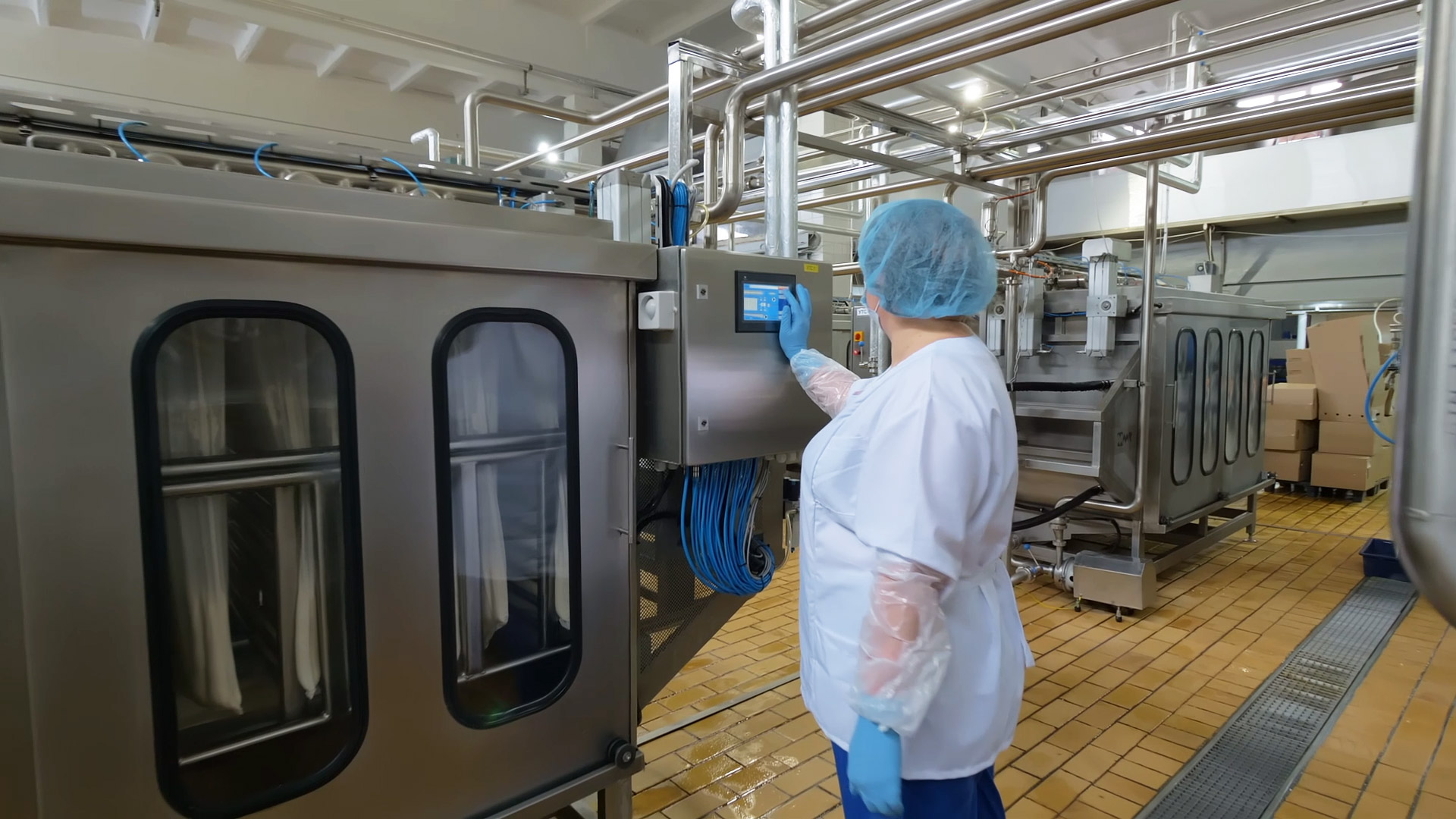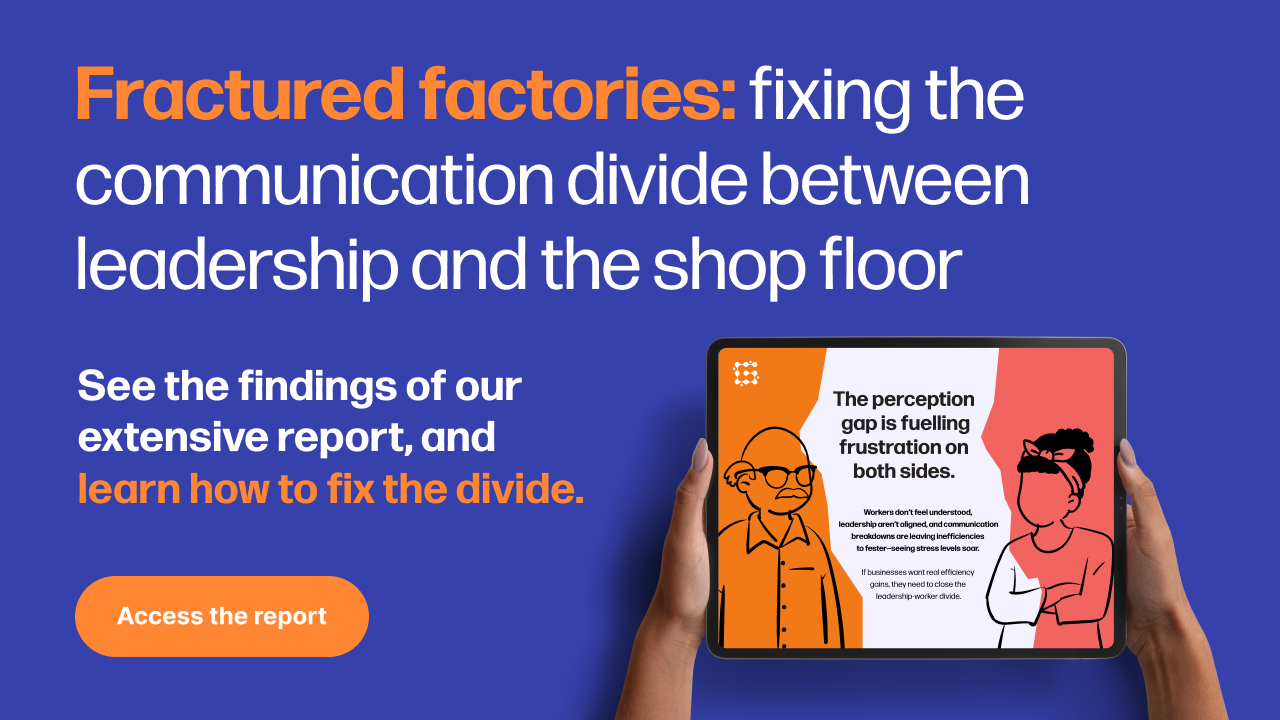Many companies have implemented a digital business strategy with the goal of improving their operational efficiency and meeting customer expectations.
According to Forbes, 55% of startups, and 70% of organisations have already adopted one or are working on one.
The integration of digital technologies is having a significant effect on manufacturers’ key processes, but what are the benefits of digitalisation for manufacturers, and do they outweigh the challenges?
What is digitalisation?

In simple terms, digitalisation is the process of converting non-digital formats of valuable information into automated digital formats. Connecting this data together to gain valuable insight helps drive decision-making and strategic direction when leading digital transformations.
There are many benefits from digital transformations being reported from the manufacturing and service industries where the evolution of technology and industry 4.0 are considered. It’s all about embracing these technologies and overcoming the barriers to change so often experienced in established organisations, which helps explain why 55% of startups have already implemented their digital strategies. Adapting the way a company operates, focusing on utilizing digital technologies to either modify existing business processes or create new ones has enabled diversification of their service and revenue income models.
How digitalisation is impacting the manufacturing industry

The manufacturing industry has continuously had to react and evolve to remain competitive. Driven by the relentless customer preferences and more recent global disruptions to supply chains, finding the best strategy to react and stay competitive during these changes has been challenging.
Having digitally connected operations brings the data to the forefront of decision-making in near real-time. This shift in how operations work is impacting the manufacturing industries in several ways.
Advances in technology and smart manufacturing are significantly impacting the way those companies who embrace the technology work, delivering tangible benefits from digitalisation. Essentially, smart manufacturing is connecting processes digitally with other networks, enabling machines to automate and produce independently to generate orders, quality checks, understand tasks and issues, and communicate messages to other machines in other factories. As a result, tasks are more efficient and reduce costs.
Another key impact on the industry is artificial intelligence (AI) and Machine Learning which have the ability to replicate the behaviour needed to understand problem-solving on a large scale, much faster and more resourcefully than any human brainpower alone could manage.
These advancements in understanding and learning from digital data allows manufacturers to move from being reactive to problems when they occur, to predicting and preventing failures before they happen. The gains being made from these learnings of behaviour from data are preventing operational delays and being replicated at scale across industries.
The benefits
 The manufacturing industry is changing rapidly, so here are some key ways your company could benefit from digitalisation in manufacturing:
The manufacturing industry is changing rapidly, so here are some key ways your company could benefit from digitalisation in manufacturing:
Increased data-based insights – Converting to digital enables a straightforward system to track, analyse, and gather data. This is critical in assisting with informed decision-making where business strategies are concerned.
Improve efficiency – Using automated data solutions instead of traditional manual processes will help improve your operations, enhance your decision-making skills, simplify monitoring performance, and test new ideas before putting them into action.
Empower productivity – Industry 4.0 technologies empower people with a better understanding of the manufacturing process, creating opportunities to innovate. Production is more efficient as a result of digitalisation, allowing businesses to better examine all production processes and identify problems.
Reduce operating costs – Real-time data allows you to improve your understanding of issues including inventory levels, delivery status, and demand cycles. This will aid in decision making, reducing unnecessary risks and costs associated with excess inventory and material.
The challenges

Although there are many benefits of digitalisation in manufacturing, there are also some challenges within the industry:
Outdated systems – Technology evolves at a far faster rate than traditional industrial equipment, which has a lifespan of fewer than ten years in many cases. The more outdated a technology infrastructure is, the more difficult it is to adapt it to a digital manufacturing environment.
Employee reluctance – Although digitalisation has the potential to empower employees, some may be resistant to change. Human errors, such as those related to safety, quality, and cybersecurity, are some of the most common dangers that businesses face. New processes and equipment retraining are frequently included in the implementation of new digital technology.
Lack of relevant knowledge – One of the biggest challenges with the evolving technology is the lack of knowledge that comes with it to safely and securely implement advanced manufacturing technology. Companies will frequently need to seek guidance from external specialists as a result of this.
So do the benefits of digitalisation in manufacturing outweigh the challenges?

Based on our 20 years of experience implementing digital technologies into a wide range of industries, we see that they do. We have been providing digital insight into operations with our range of data products and services, assisting organisations to adapt their workforce to new operationally focused technologies.
This doesn’t take anything away from the fact that many digital transformations fail to reap the potential first sought. Getting value from any investment is critical and the investment is not only in the technology but in the people to embrace it. Gemba provides both the technology and guidance to those who will use the technology to ensure the benefits from both are realised.
As technologies are continually developing, it’s difficult to pinpoint the future of the manufacturing industry. However, with all the benefits of digitalisation, small changes can be made to accelerate the digital journey for manufacturers.
We provide access to data that has a real impact on our client’s businesses, to help them make informed decisions and sustainably improve production. Discover how digitalisation applies to your organisation.
To find out more about what digitalisation is, read our blog or contact us and see what we can do for you.





